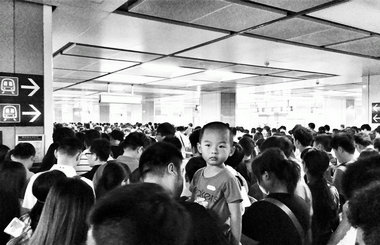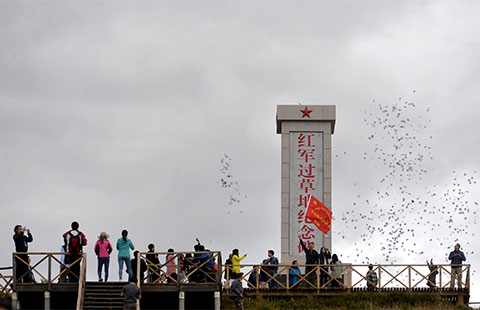A fresh approach to assessing startups
When Yu Kai, founder of Beijing Horizon Robotics Technology Research and Development Co, applied for government support to further the development of his company's automatic driving technology, he expected to face a traditional evaluative panel of experts.
But in Zhongguancun, China's Silicon Valley, the management committee has decided to adopt a different method — holding a public "roadshow" to assess which projects should qualify for assistance.
Zhongguancun, where Kai's business is based, is hoping to boost innovation and expand the value of new technologies by exposing entrepreneurs to a greater range of ideas and including investors in the process.
"The roadshow creates a platform that can bring government resources, media attention and financing opportunities to the science and technology companies, which helps them to build better business models," said Ma Zeli, chief executive officer of Nopolar Beijing Technology Co, whose company received three investment proposals at the event.
Lei Yu, president of ROOBO, a fast-growing hardware and artificial intelligence startup headquartered in Beijing, described the event as a great chance for companies to promote themselves and establish a market presence.
According to the Zhongguancun management committee, between 20 and 30 companies will be supported every year through the roadshow.
"It's a way to combine technology, social demand and market potential, using scientific and innovative achievements to solve the key issues of social development," said the committee in a statement.
Official figures show that Zhongguancun's companies realized 2.14 trillion yuan ($318 billion) in revenue in the first seven months of this year, up 16 percent year-on-year.
Meanwhile, their spending on scientific research grew 18 percent compared with the same period last year to around 73 billion yuan.
This growth has been aided by a series of recently enacted policies that aim to provide a better environment for startups and entrepreneurs by attracting high-end foreign talent.
The Ministry of Public Security has set up offices in Zhongguancun to provide services related to the issuance of permanent resident certificates for foreigners, also known as "green cards".
Launched in 2004, China's green card policy provides permanent residency for high-end foreign experts and people with large investments or for outstanding contributions to the country.
With effect from March, this program was amended to provide a more flexible, pragmatic and market-orientated approach to regulating permanent residence for foreigners.
Highly skilled foreign talent working in startups were among the groups targeted, and the policy changes are already beginning to take effect.
Between 2004 and the end of 2015, Beijing issued 1,700 green cards to foreigners — less than 200 per year, on average. In the six months since the policy was enacted, 480 green cards have been issued.


















